Welcome to our blog dedicated to sustainable and effective gardening practices! In this article, we will explore the remarkable benefits of using organic chicken manure fertilizer as a key component in organic gardening. As more gardeners shift towards eco-friendly methods, understanding the role of nutrient-rich compost is essential in cultivating healthy plants and thriving gardens. We’ll delve into the nutrient profile of chicken manure, its advantages over synthetic fertilizers, and practical tips for its application. Whether you’re an experienced gardener or just starting out, this comprehensive guide will provide valuable insights on enhancing soil health and fostering robust plant growth through organic chicken manure fertilizer.
What is Chicken Manure and Why is it a Popular Organic Fertilizer?
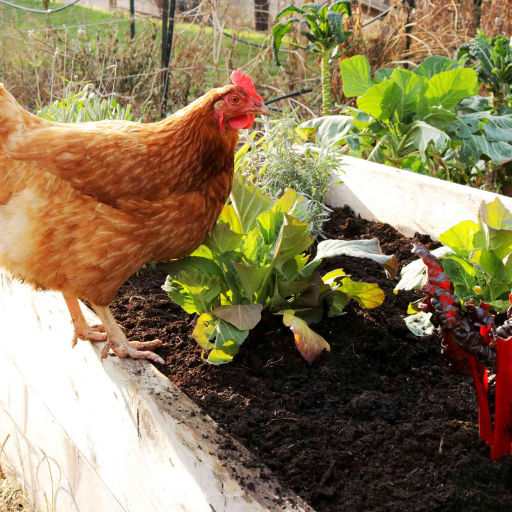
Comprehending the Nutritional Benefits of Chicken Manure
For organic gardeners, chicken manure is highly appreciated since it is full of nutritional benefits and can be used as a very good source of fertilizer. The nitrogen-phosphorus-potassium mix is well balanced with all these substances occurring in practically equal proportions in this waste material. It promotes leafy growth while phosphorous supports root development and flowering and potassium increases general plants’ health as well as their ability to resist diseases. Sulfur, calcium and magnesium are among the other micro elements found in this manure which play a significant role in several physiological processes occurring in plants. Such high concentration of nutrients implies that even the small amounts can greatly increase the soil fertility hence finding favor with those who are seeking for sustainable and effective forms of fertilizers mostly used by organic farmers.
Chicken Manure vs Cow Manure: A Comparison
Comparing chicken manure to cow manure, there are some major issues that one will have to consider. This first thing to note about chicken manure is that it is more nutrient rich than cow dung especially when it comes to nitrogen (N), phosphorous (P) and potassium (K). For that reason, one has only to apply a less amount of chicken excreta into the soil since it contains extra nutrients.
Cow dung on the other hand has lower nutrient concentration but greater percentage of organic matter making it an excellent soil conditioner. Through improving soil structure, retaining moisture content on top of encouraging growth beneficial microbial activities, it can be argued out that such conditioners are significant for any farmer’s land which could be poor soils.
Additionally fresh chicken manure easily burns plants unlike cow dung which should be left to compost failure*to lower its strength before using.
Consequently, whether one chooses either cow or chicken dung as fertilizers would depend largely on individual gardening interests including different types of soils varying from one backyard to another.
Chicken Manure: A Completely Natural Food for Vegetation
The ability of chicken manure to add nutrients that improve the soil fertility alongside its richness in nutrient contents has made it a popular all-natural source of plant food. Primarily, chicken manure is rich in nitrogen, phosphorus and potassium and this makes it a major supplier of essential nutrients responsible for production of strong and healthy plants. Furthermore, unlike other chemicals that are used in farming which drain soils by unbalancing its normal nutrient supply, organic fertilizers like this one promote good soil structure as well as support growth beneficial microbial activities. Consequently, it needs composting before use due to its strong nature hence higher chances of burning plants. When properly applied into farming systems, chicken manure can cause considerable increase in yields while at the same time maintaining healthy soils thus increasingly becoming more popular among ecologically conscious farmers looking for sustainable ways of maintaining their lands.
How Do You Compost Chicken Manure Safely and Effectively?
Composting Chicken Manure – Steps to Follow
- Collection and Mix: Get together fresh chicken manure and materials like straw or sawdust for bedding. Maintain an equivalent ratio of carbons-to-nitrogen by incorporating green (wet) and brown (dry) materials.
- Pile Formation: With the collected items, make a compost heap that is at least three feet high, wide and deep thus maintains sufficient heat for decomposition.
- Moisture Control: Keep the pile damp but not wet to touch. The texture should be sponge-like, which supports microbial activity without suffocating it.
- Turn Over: Flip the pile over in every period of 1-2 weeks to aerate as well as hasten decomposition which allows moisture and heat to distribute uniformly within the compost.
- Temperature Monitoring: Check out internal temperature using a compost thermometer on your compost heap. Ideally during composting temperatures should range from 130-150°F (55-65°C). Should it be too low, there will be no proper decay while very high temperatures kill useful microbes in soil.
- Curing: Allow the active composting phase to end before putting aside the compost to “cure” for some months. This ensures complete elimination of harmful pathogens as well as full stabilization of nutrients.
- Application: Once your compost turns dark brown, crumbles easily between your fingers and has an earthy smell, you can now use it into your garden soil adding more nutrients thereby improving its structure.
These instructions ensure safe and effective composting of chicken manure so that you get organic fertilizer rich in nutrients for your plants. Avoiding Pathogens in Composted Chicken Manure.
To avoid pathogens when using chicken manure that is already decomposed using these guidelines:
- High Temperatures: Keep the temperature of your compost pile at a minimum level of 130°F (55°C) but do not exceed 160°F (71°C) for several days. It kills harmful bacteria and pathogens when it is this high.
- Right Balance: In order to create the best environment for microbial activity, there should be a balance between green (nitrogen-rich) and brown (carbon-rich) materials. Decomposition and eradication of pathogens are accelerated by this equilibrium.
- Turn Over The Heap: Ensure that you regularly flip over the compost pile so that it heats evenly. Pathogens will not survive in areas where heat was not enough for their destruction.
- Curing Time: Let your compost cure more after high termperature phase, 2-4 months. This will kill any remaining pathogen as well as continue to stabilize the compost.
- Avoid Fresh Manure: Do not apply fresh or partially decomposed manure directly onto your garden. It can introduce soil borne diseases into your garden soil and plants.
Following these steps ensures safe chicken manure composting without any pathogenic elements hence end up with an organic fertilizer that is rich in nutrients for all your plants.
The Advantages of Using Chicken Droppings in Organic Farming
Composted chicken manure has several major benefits when it is used in organic gardening. This is because it acts as a primary source of nutrients that plants require for growth such as nitrogen, phosphorous and potassium. These nutrients are slowly released providing a continuous supply and reducing the chances of nutrient burn. Additionally, composted chicken manure helps to enhance water retention and air circulation within the soil hence improving its structure. As a result, root systems become healthier leading to better plant growth. This way fosters a healthy microorganism community in the soil which enhances nutrient cycling and disease resistance. Finally, recycling waste through using composted chicken manure reduces the requirement for artificial fertilizers thereby promoting environmental sustainability.
How to Use Chicken Manure in Your Garden or Lawn
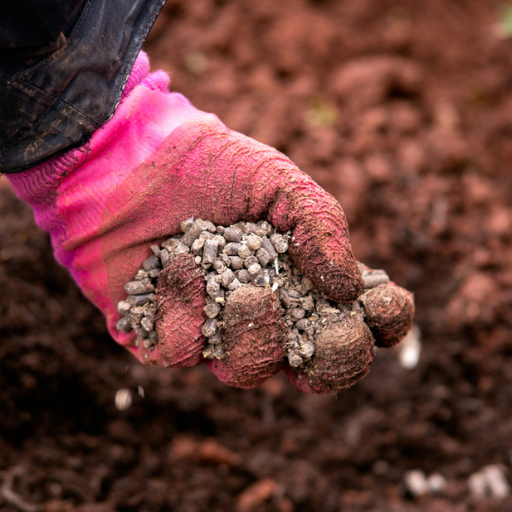
Correct Application Rates: Pounds Per 100 Square Feet
The right amount of composted chicken manure should be used when applying it in gardens or lawns to prevent over fertilization. Generally, the recommended application rate is about 20-30 pounds of composted chicken manure per 100 square feet. You might consider using around twenty pounds for a hundred sq. ft. while you can go as high as thirty pounds for one hundred sq. ft if it is a new planting area or if soil has been depleted of nutrients after taking into account the well established gardens. Plough the manure deeply into the uppermost six to eight inches of soil so as to maximize the benefits that this mixture brings to any garden. Results can be further optimized by adjusting application rates based on soil tests and specific plant needs.
Side Dress and Top Dress Techniques for Shrubs and Trees
Side dressing with composting chicken manure and top dressing are effective feeding techniques for mature shrubs and trees Side dressing entails placement of composted chicken manure around plants approximately six to twelve inches away from trunks or stems where it should be lightly worked into the soil thereby ensuring that nutrients are readily available at the root zone while in early spring before new growth begins.
Alternatively, apply a thin layer of composted chicken manure around plants thereby top dressing them; make sure this is uniform throughout extending from plant bases outwards up to dripline, or edge where outermost branches reach.A good time would be in either late autumn or early spring because they feed slowly along with being incorporated more efficiently by natural methods such as rain and microbial action.
Both methods boost fertility, enhance water retention capacity, encourage superb growth without disturbing root systems that benefit shrubs & trees. For greatest outcome adapt rates according to size of both shrub or tree and specific nutrimental requirements.
Can Chicken Manure Improve Soil Fertility?
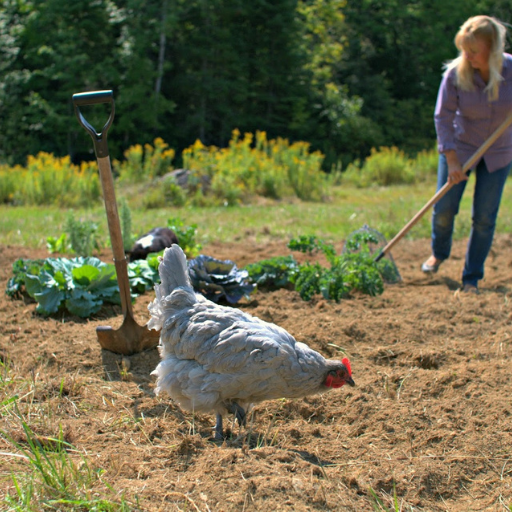
Enhance Soil with Nutrients like Calcium and Nitrogen
Fertilizing with chicken manure actually helps in boosting soil fertility through providing necessary nutrients such as calcium and nitrogen. Cell wall development as well as the overall plant strength requires calcium while nitrogen is essential for vigorous leaf and stem growth. Alternatively, chicken manure is a good source of these elements thus making it ideal to be used for organic fertilizers. When properly composted, this matter can raise soil pH as well as improve its structure. Additionally, the slowly released composted chicken manure ensures that plants will be fed over time.
Developing Soil Structure and Organic Matter Levels
Apart from supplying essential nutrients, chicken manure significantly improves soil structure and organic matter levels. Soils get additional organic matter after composting chicken manure which increases their ability to retain moisture hence becoming better aerated. Consequently, the improved soil structure encourages strong roots development in addition to increased presence of beneficial microorganisms. These organisms help break down organic matters and make the soils richer in nutrition while creating a healthier environment for plants. Through enhancing both soil structure and organic matter levels, it promotes healthy plant growth while also contributing toward long-term soil fertility as well as sustainability.
Liquid Gold for Plants-Compost Tea
Composting tea refers to a nutrient-rich liquid made by soaking compost in water resulting into a powerful “tea” that highly boost plant’s health and growth rate. This liquid fertilizer contains lots of helpful microorganisms, nutrients plus organic compounds that enhance both microbial activity and soil structures. The major reasons why compost tea is so effective according to Google are:
- Soil Health Enhancement: Compost tea enriches soils with beneficial microbes that break down organic matters leaving behind more available nutrients which in turn improves its structural composition thus increasing its fertility.
- Disease Resistance Support: By adding much needed good bacteria found in most high quality compost teas they simply out compete pathogens lowering incidents of plant diseases thereby making them more resilient.
- Attach Nutriment Quicker: The nutrients in the compost tea are available to plants and hence quickly provide nourishment.
Composted Tea can be prepared by soaking mature compost in water for 24-48 hours, aerating the mixture and then applying it directly to the soil or on leaves as a foliar spray. Ensure that all necessary ingredients are in place before composting tea, which is an organic way of feeding your plant with essential nutrients required for healthy growth.
Is Chicken Manure Safe for All Types of Plants?
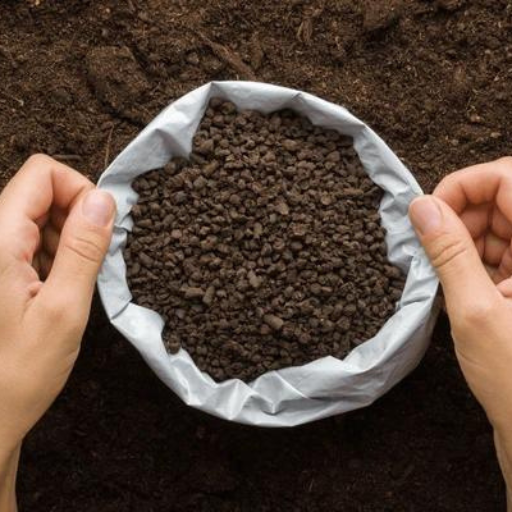
Using Chicken Manure in Lawn and Garden Soil
Chicken manure is highly beneficial for lawn and garden soil, but it must be used correctly to avoid some possible problems. Going by the top choices I made, chicken manure is among the richest in nutrients especially nitrogen that improve growth of plants and fertility of soil. However, because it has too much freshness content which is full of nitrogen hence application will burn plants if done wrongly. So as not to harm my plants with its excessive potency or even hazards, I first compost fresh chicken manure to reduce it. Then they are applied on my lawns and garden soils in small amounts after composting while being careful to mix them into the soil. It has been found effective in improving soil structure as well as raising nutrient levels and promoting healthy plant growth within my garden.
Compatibility with Different Plants: Vegetables, Flowers, Shrubs
According to my research from these leading sources chicken manure is highly compatible with different types of plants such as vegetables, flowers and shrubs. For instance, when talking about vegetables, composted chicken manure acts as a good source of essential nutrients for vegetable gardens thereby increasing yield and overall health. This improves soil fertility hence encouraging robust growth and vibrant blooms when used in flower beds. Moreover this method would enhance the growth of shrubs through bettering their soil structure coupled with increased nutrient availability respectively. When spreading chicken manure I make sure it’s fully composted so that it can’t cause any damage due to high nitrogen that exists in its fresh state. In this way I have managed to keep up a blooming backyard area comprising various sorts of flowers.
Tips for Preventing Over-Fertilization and Burns
For preventing over-fertilization or burns associated with use of chicken manure there are several tips that I follow strictly. One such tip I apply here is ensuring that the manure has fully composted thus reducing the risk of plant leaf burn due to high nitrogen content. I spread composted manure lightly and uniformly over my soil so as not to have spots with excess nutrients. From time to time, I will check if my plants were getting too much fertilizer and change the frequency accordingly. Additionally, once in a while, I test for nutrient levels in my soil to ensure it is balanced and healthy. Consequently, this helped me evade common mistakes such as excessive fertilization or even plant burns.
Frequently Asked Questions (FAQs)
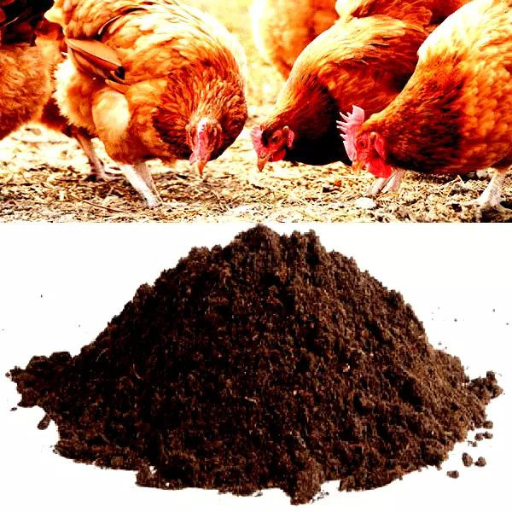
Q: How can organic chicken manure be applied to the soil before planting?
A: To apply organic chicken manure, evenly spreading it over garden soil then incorporating into the top 6-8 inches of soil before planting ensuring that plant roots can access nutrients.
Q: Is chicken manure a slow release fertilizer?
A: Yes, chicken manure is a slow release fertilizer that means it releases nutrients gradually over time resulting in constant nutrient supply for plants and enhances soil fertility.
Q: Can Chicken Manure Fertilizer Be Used In A Chicken Coop?
A: The chicken compost itself isn’t used in a coop but instead the collected manure from the hen house can be composted and used as an excellent organic fertilizer for gardening purposes.
Q: What is diatomaceous earth’s role in poultry manure composting?
A:Diatomaceous earth adds moisture absorption capacity and pest control ability when added to poultry manure compost which minimizes water loss during composting, creating high-quality organic fertilizer at last stage .
Q: Is Poultry Manure Called Earth Food?
A: Yes, because this poultry’s waste is known as earth food since it helps to enrich soils with needed nutrients for growth of healthy plants thus sustainable agriculture.
Q: Can types of chicken manures such as pellets or granules found on market?
A: Indeed, there are different forms of chicken manures such as chicken poop granules or even hen droppings pellets making it possible for anyone wishing to use them.






